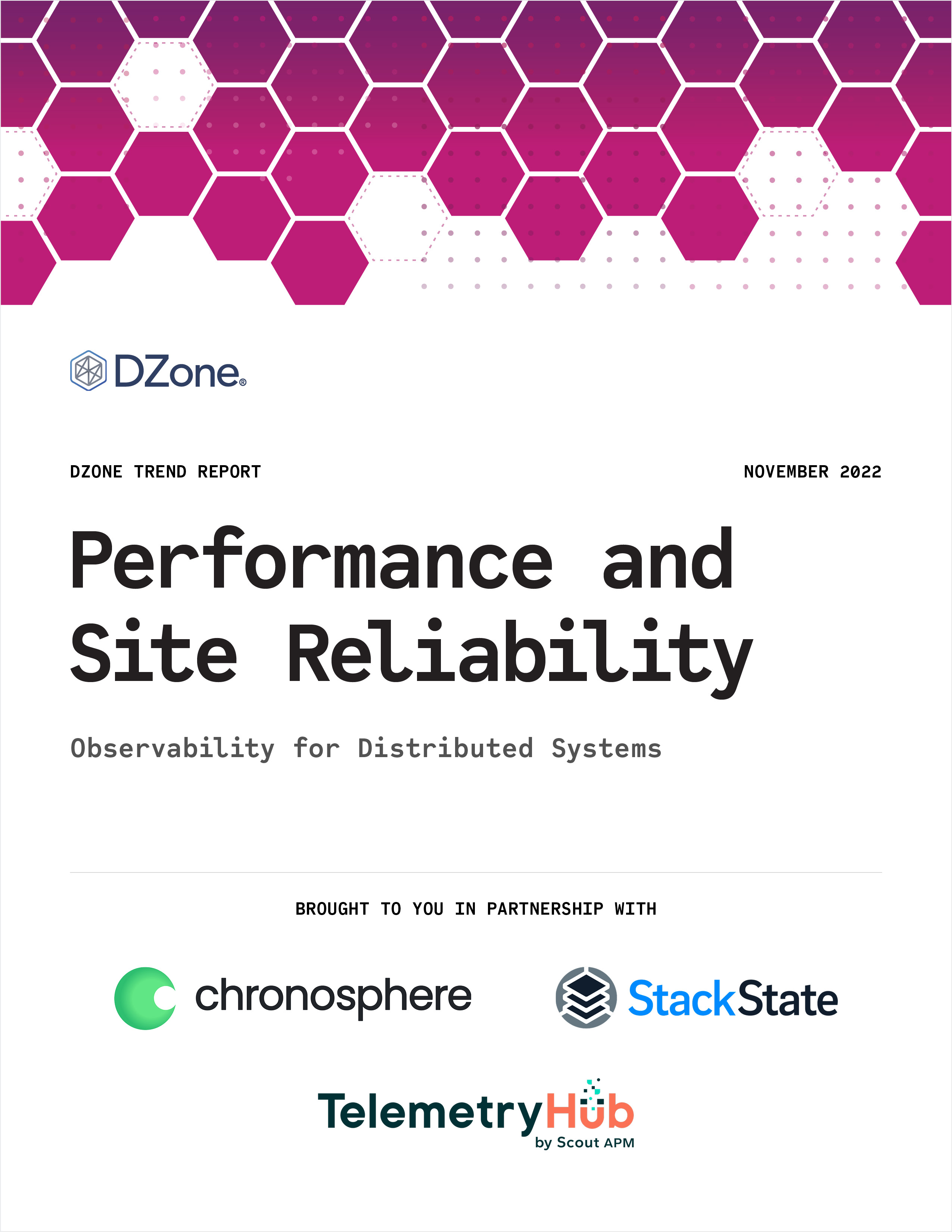DZone Research Report: A look at our developer audience, their tech stacks, and topics and tools they're exploring.
Getting Started With Large Language Models: A guide for both novices and seasoned practitioners to unlock the power of language models.

The concept of observability was first leveraged over 110 years ago. It was initially known as telemetry, and in 1912, it used the city of Chicago’s telephone lines to transmit data from the electric power plants to a central control station. Today, modern observability is still very much focused on the interplay of data to yield informed inputs and outputs of systems. Sprinkle in site reliability engineering (SRE), and there should be little to no performance issues in distributed systems, right? In an ideal world, yes, but in reality, there is still work to be done.
DZone’s 2022 Trend Report, Performance and Site Reliability: Observability for Distributed Systems, takes a holistic view of where developers stand in their observability practices. Through the research and expert-contributed articles, it offers a primer on distributed systems observability, including how to build an open-source observability toolchain, dives into distributed tracing, and takes a look at prospective performance degradation patterns. It also provides insight into how to create an SRE practice, as well as tactics to conduct an effective incident retrospective. The goal of this Trend Report is to offer a developer-focused assessment of what the current state of observability is and how it fits in with modern performance practices.